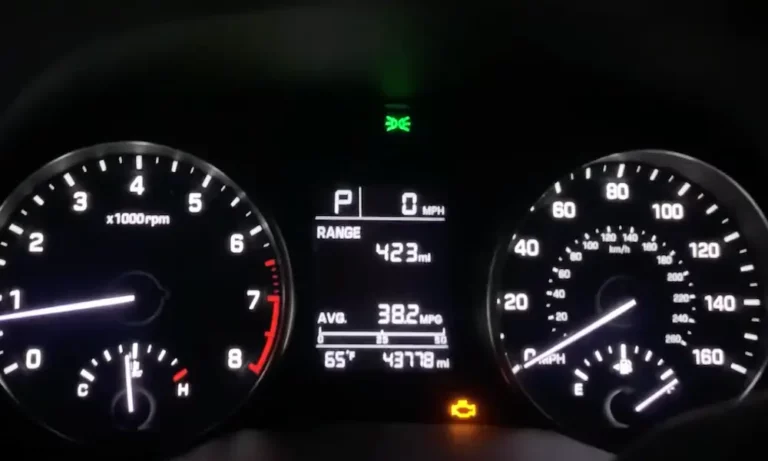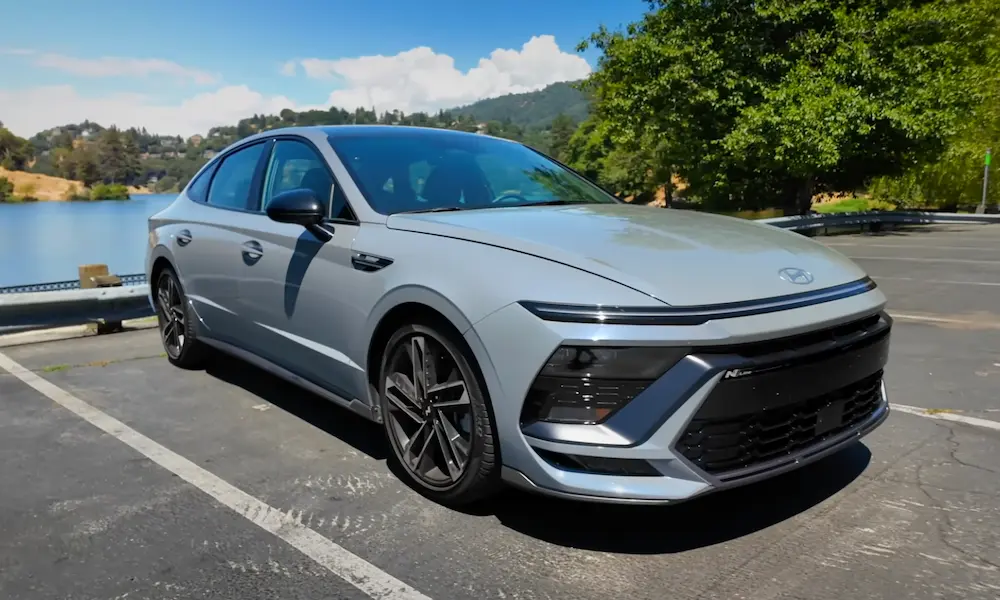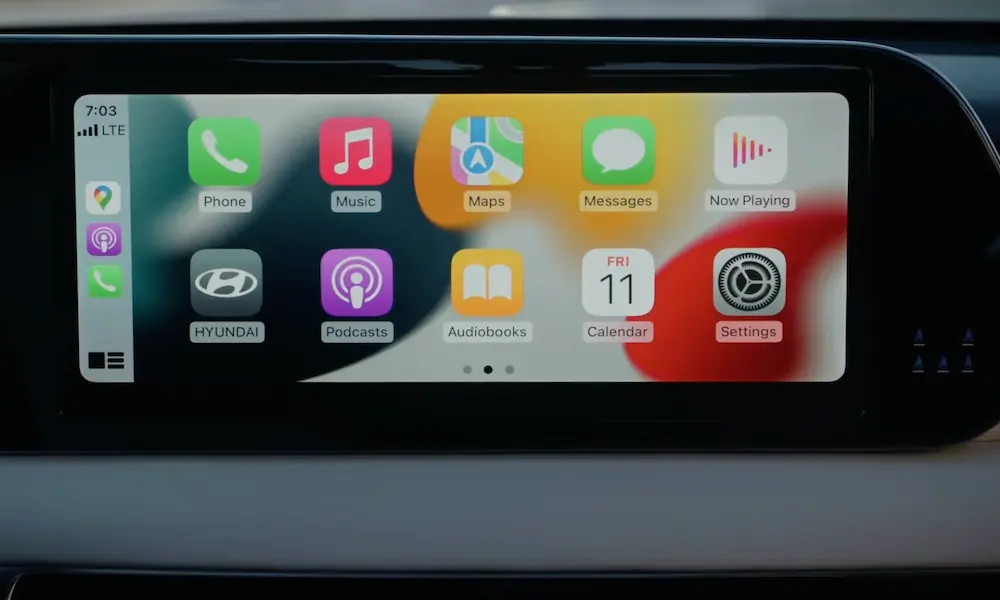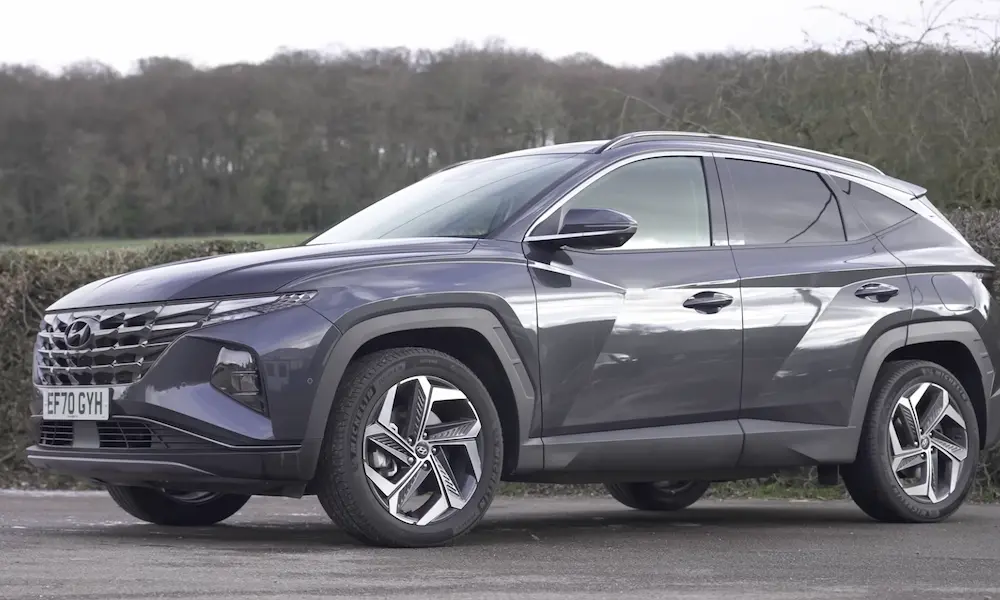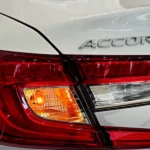When your Hyundai’s check engine light starts blinking at you from the dashboard, it’s not just another annoying warning you can ignore. That flashing light is your car’s desperate attempt to tell you something is seriously wrong – right now.
Unlike a steady light that suggests “get this checked when you can,” a flashing check engine light in your Hyundai is screaming “STOP DRIVING ME!” Understanding what this critical warning means can save you thousands in repair costs and potentially prevent you from being stranded on the side of the road.
The Difference Between Steady and Flashing Check Engine Lights
Your Hyundai’s computer system is smarter than you might think. It distinguishes between minor issues and major problems through how it displays the check engine light:
Steady Light: This means “I’ve detected a problem, but it’s not an emergency.” Common causes include a loose gas cap, minor sensor issues, or maintenance needs. You should get it checked soon, but you can typically continue driving.
Flashing Light: This is your Hyundai’s way of saying “EMERGENCY!” A flashing light indicates a severe problem that could cause immediate damage to expensive components. This requires immediate attention – not next week, not tomorrow, but right now.
“Think of a flashing check engine light like chest pain,” says one mechanic. “You wouldn’t ignore severe chest pain, and you shouldn’t ignore a flashing warning light either.”
What Causes a Hyundai’s Check Engine Light to Flash?
Engine Misfire: The Most Common Culprit
In about 90% of cases, a flashing check engine light in your Hyundai indicates an engine misfire. During a misfire, one or more cylinders aren’t firing properly, causing:
- Unburned fuel to dump into the exhaust system
- Noticeable shaking or vibration, especially at idle
- Loss of power when accelerating
- Rough running and potential stalling
The severity of the misfire determines whether your check engine light stays steady or begins flashing. A minor, occasional misfire might trigger a steady light. A severe, continuous misfire will cause the light to flash because it can quickly lead to catalytic converter damage.
Ignition System Problems
Several ignition system components can fail and cause your Hyundai’s check engine light to flash:
- Worn spark plugs: Old or fouled spark plugs can’t create the proper spark needed for combustion.
- Damaged spark plug wires: Cracked insulation or loose connections interrupt the electrical flow.
- Failing ignition coils: These components transform your car’s 12-volt power into the thousands of volts needed for spark plugs to fire.
As one Hyundai service technician noted, “A bad, old or dirty spark plug can cause the engine to misfire. If the problem is ignored or you continue to drive, this can spread to the spark plug wires, catalytic converter, or ignition coils which can lead to a very expensive repair.”
Fuel System Issues
Problems in your Hyundai’s fuel delivery system can also trigger a flashing check engine light:
- Clogged fuel injectors: When injectors can’t spray fuel properly, cylinders misfire.
- Fuel pressure problems: Too much or too little fuel pressure disrupts the air-fuel mixture.
- Failing fuel pump: When the pump can’t deliver consistent fuel flow, misfires result.
- Bad fuel: Contaminated gasoline can cause serious performance issues.
Sensor Malfunctions
While less common, faulty sensors can sometimes cause conditions severe enough to trigger a flashing check engine light:
- Oxygen sensor failures
- Mass airflow sensor problems
- Camshaft or crankshaft position sensor issues
The Serious Risks of Ignoring a Flashing Check Engine Light
When your Hyundai’s check engine light flashes, the clock starts ticking. Every minute you continue driving increases the potential for expensive damage.
Catalytic Converter Destruction
The most immediate risk is damage to your catalytic converter. When misfire occurs, unburned fuel enters the exhaust system and ignites inside the catalytic converter. This can:
- Cause internal temperatures to skyrocket to over 2,000°F
- Melt the converter’s precious metal honeycomb structure
- Lead to a completely failed emissions system
Replacing a catalytic converter typically costs between $1,000-$2,500 on most Hyundai models – a repair that could have been avoided by addressing the original issue promptly.
Engine Damage Progression
Continued driving with a severe misfire can cause cascading engine damage:
- Initial cylinder misfire (potentially a simple fix)
- Overheating of affected components
- Damage to cylinder walls, pistons, or valves
- Complete engine failure (potentially requiring $4,000+ for a rebuild or replacement)
Cost Comparison: Fix Now vs. Wait
Here’s what you might expect to pay depending on when you address the issue:
| Repair Stage | Typical Cost | Components Affected |
|---|---|---|
| Immediate (when light first flashes) | $100-$500 | Spark plugs, ignition coils, minor sensors |
| Delayed (1-2 days of driving) | $1,000-$2,500 | Catalytic converter plus original issue |
| Significantly Delayed (extended driving) | $3,000-$7,000+ | Engine rebuild/replacement plus other damaged systems |
What to Do When Your Hyundai’s Check Engine Light Starts Flashing
Immediate Actions to Take
When you see that flashing warning:
- Reduce Speed and Engine Load: Immediately take your foot off the gas and slow down gradually.
- Pull Over Safely: Find the first safe location to stop. Don’t panic, but don’t continue your journey either.
- Assess Other Symptoms: Note any unusual noises, vibrations, or smells. This information will help your mechanic.
- Turn Off the Engine: If you notice severe shaking or knocking sounds, shut down the engine as soon as you safely can. Continuing to run the engine can cause more damage.
- Arrange Transportation: Don’t attempt to “limp home” or to a service center. The potential savings in towing costs aren’t worth the risk of major engine damage.
Getting Professional Diagnosis and Repair
A flashing check engine light requires professional attention:
- Use a Towing Service: Most mechanics and Hyundai service technicians recommend having the vehicle towed rather than driving it, even a short distance.
- Visit a Qualified Mechanic: Hyundai dealerships or certified mechanics have the specialized diagnostic equipment to read your specific trouble codes.
- Get a Complete Diagnosis: The initial problem setting off the warning might be just one part of a larger issue.
- Address All Related Problems: Fixing only the trouble code without addressing underlying causes often leads to repeated failures.
- Don’t Reset and Drive: Some people are tempted to disconnect the battery to reset the light and continue driving. This is like removing the batteries from a smoke detector during a fire – the warning disappears, but the danger remains.
Common Diagnostic Trouble Codes with Flashing Check Engine Lights
When your mechanic connects a diagnostic scanner to your Hyundai, they’ll likely find one of these trouble codes if your check engine light was flashing:
| Code | Description | Common Causes |
|---|---|---|
| P0300 | Random/Multiple Cylinder Misfire | Fuel delivery issues, ignition problems, vacuum leaks |
| P0301-P0308 | Cylinder X Misfire (X = cylinder number) | Bad spark plug, faulty coil, injector problem in specific cylinder |
| P0171/P0174 | System Too Lean | Vacuum leaks, fuel pressure problems, clogged injectors |
| P0420/P0430 | Catalyst System Efficiency Below Threshold | Often indicates catalytic converter damage from previous misfires |
Preventative Maintenance to Avoid a Flashing Check Engine Light
The best way to avoid emergency situations is through regular maintenance. For Hyundai vehicles:
Follow Your Vehicle’s Maintenance Schedule
- Spark plug replacement: Most Hyundai models need new spark plugs every 60,000-100,000 miles
- Fuel system cleaning: Consider a fuel system service every 30,000 miles
- Air filter replacement: Change every 15,000-30,000 miles
- Regular oil changes: Use the grade and change interval recommended in your owner’s manual
Address Warning Signs Early
Don’t ignore these early indicators of problems:
- Hesitation during acceleration
- Rough idling
- Decreasing fuel economy
- Occasional stumbling or brief power loss
- Hard starting
These symptoms often precede a flashing check engine light by days or weeks. Addressing them early can prevent an emergency situation.
Take Steady Check Engine Lights Seriously
A steady check engine light often develops into a flashing one if ignored. When your Hyundai displays a steady check engine light:
- Check your gas cap first (loose caps are a common cause)
- If tightening the cap doesn’t resolve the issue, get it diagnosed within a week
- Don’t wait for the problem to worsen
For Different Hyundai Models
While the general advice applies to all Hyundai vehicles, some models have specific issues worth noting:
Sonata (2011-2014): These models sometimes experience theta engine issues that can trigger a flashing light. The National Highway Traffic Safety Administration has investigated several complaints related to these engines.
Santa Fe (2013-2018): Some owners report ignition coil failures that cause check engine lights to flash. Replacing all coils at once is often recommended when one fails.
Elantra (2017-2020): A small number of these vehicles have experienced fuel injector issues that can trigger misfires and flashing check engine lights.
Tucson (2016-2021): Some owners have reported catalytic converter efficiency codes following misfires. Getting prompt service is especially important for these models.
The Cost of Diagnosis and Likely Repairs
When budgeting for repairs after a flashing check engine light, here’s what you might expect:
- Diagnostic fee: $75-150 at most service centers (often waived if repairs are done there)
- Spark plug replacement: $150-300 depending on engine type
- Ignition coil replacement: $200-400 for a set
- Fuel injector service or replacement: $250-500
- Catalytic converter replacement: $1,000-2,500
- Engine repair (worst case): $2,500-7,000+
Many Hyundai vehicles are covered under the company’s industry-leading warranty, including:
- 5-year/60,000-mile new vehicle warranty
- 10-year/100,000-mile powertrain warranty
- 7-year/unlimited-mile anti-perforation warranty
If your vehicle is still under warranty, the repairs for issues causing a flashing check engine light may be covered.
Final Thoughts on Flashing Check Engine Lights
A flashing check engine light in your Hyundai isn’t something you can schedule for “next weekend.” It’s your vehicle’s most urgent warning, designed to prevent catastrophic damage.
Remember:
- Pull over safely as soon as possible
- Arrange for a tow to a qualified service center
- Don’t restart the vehicle if you noticed severe symptoms
- Address all related problems, not just the symptoms
By responding quickly and appropriately to this warning, you can often avoid the most expensive repair scenarios and keep your Hyundai running reliably for years to come.

